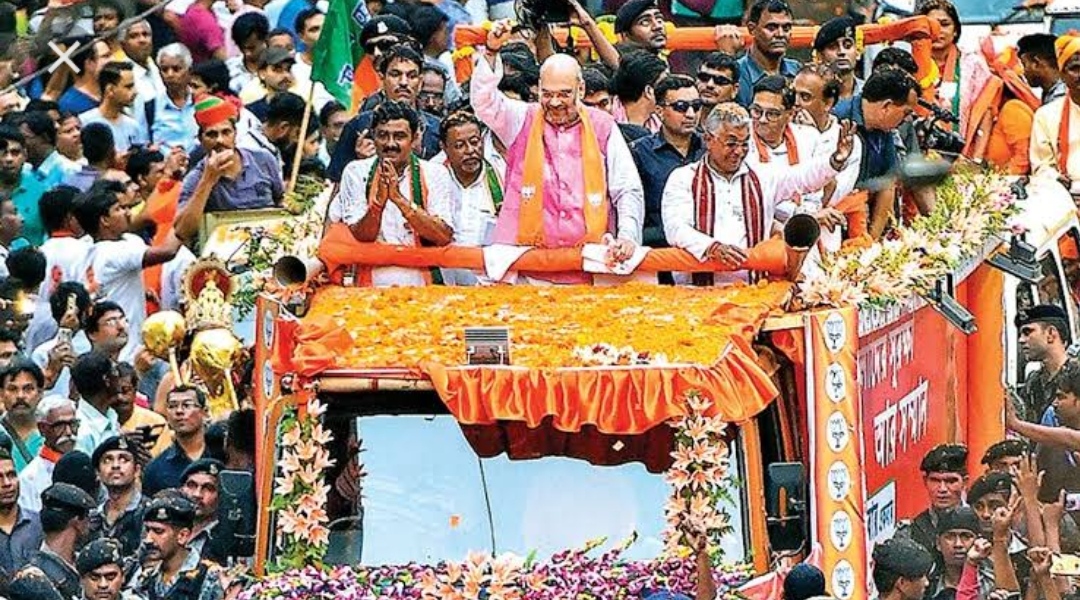India to hold elections in UP despite rising COVID-19 cases
India predicted to head into an intense but short-lived virus wave in coming day

BJP President and Indian Home Minister Amit Shah at an election rally.
India is going ahead with a legislative election in its most populous state despite daily COVID-19 infections more than doubling nationwide within a week.
India reported 27,553 new COVID-19 infections over the past 24 hours, as infections of the Omicron variant continued to rise, data from the health ministry showed on Sunday.
COVID-19 deaths rose by 284, taking the total death toll to 481,770, according to the health ministry.
India has recorded a total of 34.88 million COVID-19 infections.
Thousands of people without masks have been crowding the election rallies of top politicians across Uttar Pradesh state.
Chief Election Commissioner Sushil Chandra says all political parties in the northern state of 200 million want the election held by March.
Chandra rejected a state High Court’s suggestion to postpone the election in light of an expected surge in infections fueled by the omicron variant of the coronavirus.
Dr. K.K Paul, a top government official, said the World Health Organization’s warning of a COVID-19 tsunami was not India-specific and referred to the global situation.
India may see a spurt in the COVID-19 growth rate within days and head into an intense but short-lived virus wave as the highly-infectious omicron variant moves through the crowded nation of almost 1.4 billion.
“It is likely that India will see a period of explosive growth in daily cases and that the intense growth phase will be relatively short,” Paul Kattuman, professor at the Judge Business School at the University of Cambridge which has developed a COVID-19 India tracker, wrote in an email. “New infections will begin to rise in a few days, possibly within this week,” he said, adding that it was hard to predict how high the daily cases could go.
Kattuman and his team of researchers, developers of the India COVID-19 tracker, are seeing a sharp rise in infection rates across India. The tracker spotlighted six states as a “significant concern” in a December 24 note, with adjusted growth rate of new cases exceeding 5 per cent. This had expanded to 11 Indian states by December 26, according to the tracker, which corrects for “day of the week effects” and other variations.
Last week, it allowed booster shots and included teenagers aged 15 to 18 in the inoculation programme. Two more vaccines as well as antiviral pill molnupiravir, developed by Merck & Co. with partner Ridgeback Biotherapeutics LP, were approved by the local drug regulator.
Indian capital New Delhi closed cinemas, schools and gyms and introduced restrictions on public gathering last Tuesday – a day after it reported the most new cases in more than four months.
These policy decisions underscore hard lessons India learned after a deadly delta-led virus wave in April and May that pushed infections to a record-beating 400,000-plus each day. It overwhelmed the country’s hospitals and crematoriums and left its citizens pleading for oxygen and other medical resources on social-media platforms.
The Cambridge India tracker had correctly called the peak of this devastating second wave in May and also forecast in August that India would see a slow burn in its COVID-19 infections curve until the vaccination coverage was sufficiently high. India crossed 1 billion administered vaccine doses in October and new cases plunged in tandem with that milestone.



